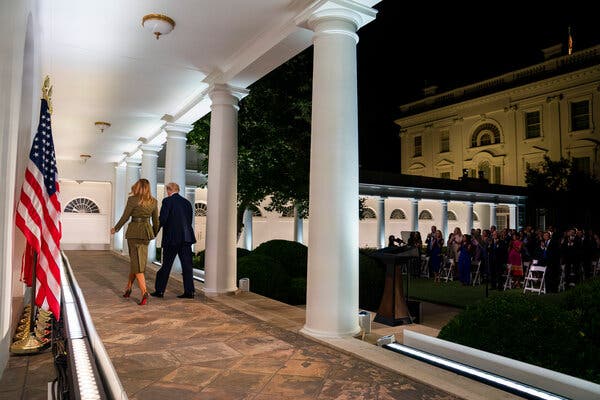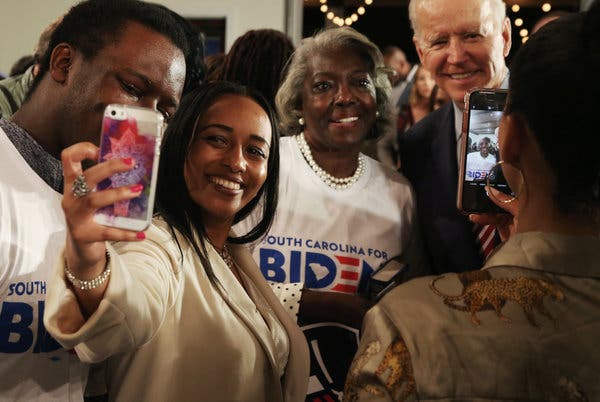Advertisement
The law, which prohibits federal employees from engaging in political activities while on the job, has rarely led to the firing of political appointees.

No modern president has accepted his party’s nomination for re-election from the White House.
But amid the coronavirus pandemic, which has forced a near-total reimagining of how to carry out a presidential campaign, President Trump plans to do just that on Thursday, when he will deliver his acceptance speech to the Republican National Convention from the South Lawn of the White House.
The speech is expected to be the last of several repeated violations over the course of the convention of the Hatch Act, a Depression-era law devised to ensure that the federal work force operates free of political influence or coercion.
Here is what you need to know about the Hatch Act and why it has drawn so much attention during the Republican National Convention.
The Hatch Act prohibits federal employees from engaging in political activities while they are working in an official capacity. Named for former Senator Carl A. Hatch, Democrat of New Mexico, the law has been on the books for 81 years.
The Hatch Act also bars civil servants from running for political office or using their titles while participating in political activities.
Critics have questioned whether any aspect of Mr. Trump’s convention speech at the White House can be televised without help from federal workers, and they have said that several violations of the law occurred over the course of the convention this week.
Melania Trump, the first lady, delivered her convention remarks from the White House Rose Garden on Tuesday. Secretary of State Mike Pompeo addressed the convention from Israel, while on an official diplomatic trip to the Middle East and North Africa. And Mr. Trump and other officials took part in a naturalization ceremony and a presidential pardon as the convention cameras rolled.
Judd Deere, a White House spokesman, said on Monday that the staff members aiding Mr. Trump would be careful to abide by the law. While the restrictions do not apply to the president himself, any staff members assisting with the speech are likely to be doing so in violation of the act.
The law is enforced by the Office of Special Counsel, an independent agency that enforces Civil Service laws governing federal employees.
While violation of the Hatch Act was intended to be a fireable offense, that outcome has been exceedingly rare in modern politics. By most legal interpretations, the president is the only person who can terminate political appointees for violating the law.
For most other career officials, violations are reviewed by the United States Merit Systems Protection Board. Though the board can prosecute and punish civil servants for violations, a finding by the Office of Special Counsel that a political appointee violated the Hatch Act would be left to the president.
Mike Pence accepts the V.P. nomination, saluting Trump in a wide-ranging speech.
Aug. 26, 2020, 10:34 p.m. ET
Lara Trump says her ‘preconceived notion’ about the Trumps disappeared when she became one.
Aug. 26, 2020, 10:29 p.m. ET



